Nonhuman Rights Project Rallies for Captive Elephant in Advance of Landmark Court Hearing
The News
On Saturday, April 30th, dozens of activists with the Nonhuman Rights Project (NhRP) staged a rally at the Bronx Zoo to demand that the Wildlife Conservation Society (WCS), which manages the zoo, release a 51 year old Asian elephant named Happy to a sanctuary after holding her captive in a small enclosure since 1977.
Happy was kidnapped from a forest in Thailand in 1971, and she has lived at the Bronx Zoo for 45 years. Despite the fact that elephants are highly social animals who travel long distances with their herds each day, Happy lives by herself and splits her time between on a one acre plot of land and a windowless, concrete room.
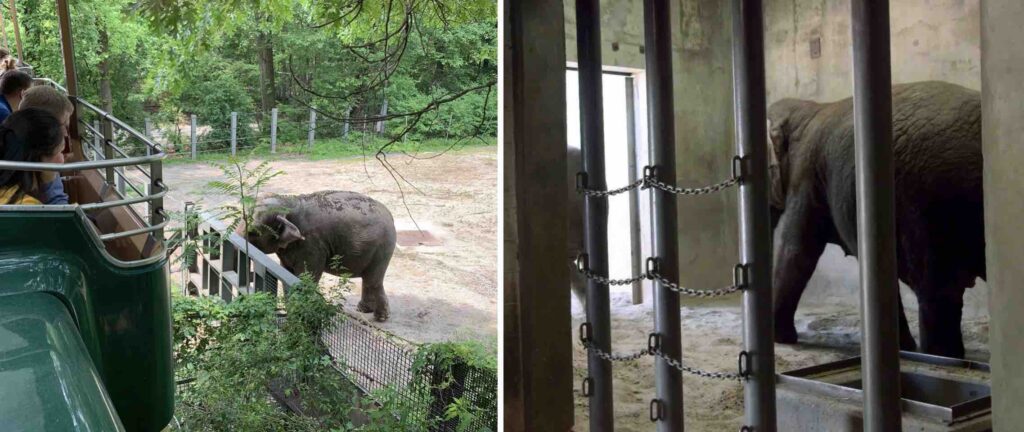
Happy, who lives alone, splits her time between a windowless concrete room and a one acre plot of land at the Bronx Zoo.
NhRP, a nonprofit legal group that represents captive animals, staged the event in advance of Happy’s upcoming hearing at the Court of Appeals, New York’s highest court. During the hearing, lawyers with NhRP will argue that the Bronx Zoo and the Wildlife Conservation Society “have unlawfully deprived Happy of her freedom, imprisoning her alone in an exhibit that is too small to meet the needs of Happy or any elephant.” If NhRP wins the case at the Court of Appeals, then the WCS would be forced to send her to one of the two elephant sanctuaries in the United States.
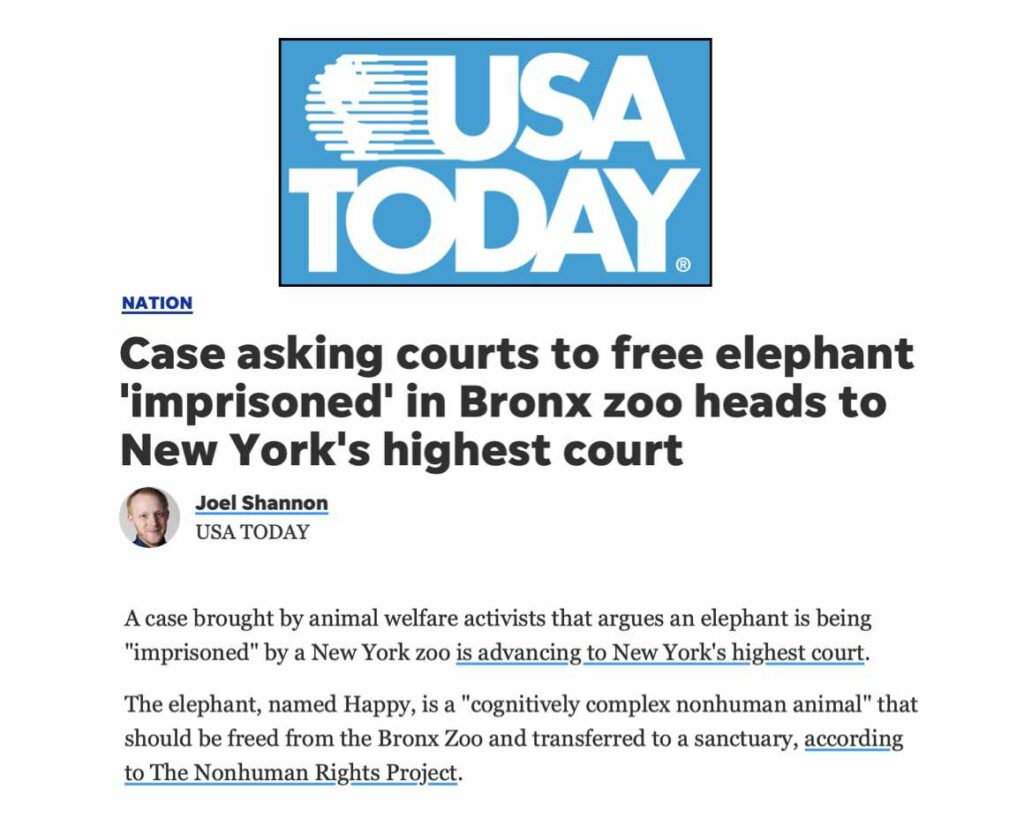
The Atlantic describes the Nonhuman Rights Project’s right to bodily liberty case on behalf of Happy “the most important animal rights case of the 21st century.”
Happy’s case advanced to the Court of Appeals after being heard in two lower courts. According to The Atlantic, it is “the most important animal-rights case of the 21st century.”
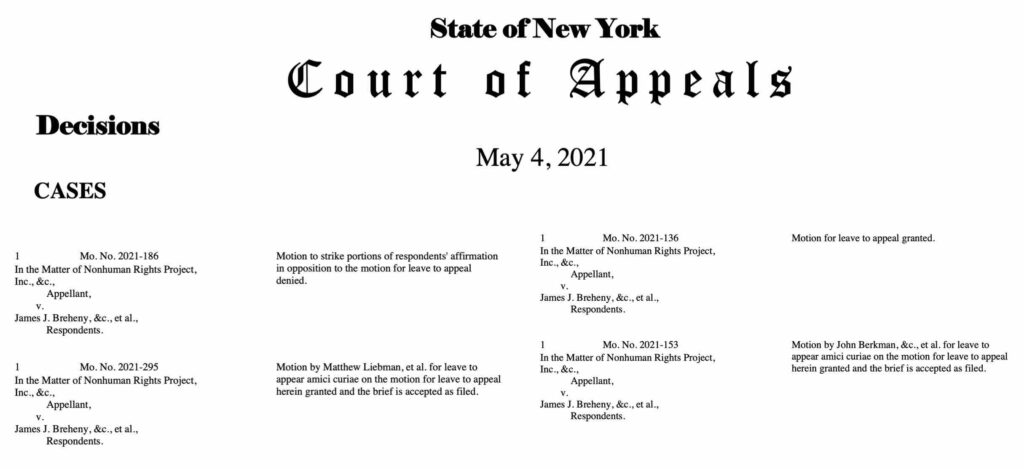
New York’s highest court, the Court of Appeals, will be hearing oral arguments in the Nonhuman Right Project’s case to grant bodily liberty to Happy, an elephant held captive at the Bronx Zoo.
Both of the elephant sanctuaries in the United States, the Elephant Sanctuary in Tennessee and the Performing Animal Welfare Society in California, have agreed to take Happy at no cost to the Bronx Zoo, but the WCS has refused to let her go. “The Wildlife Conservation Society acknowledged in 2006 that keeping Happy alone would be inhumane, so we don’t understand why they won’t release her from captivity,” said Kevin Schneider, the Executive Director of NhRP. “They either don’t want to acknowledge that Happy’s captivity and solitary confinement are cruel, or they don’t want to cave into pressure from animal rights advocates.”
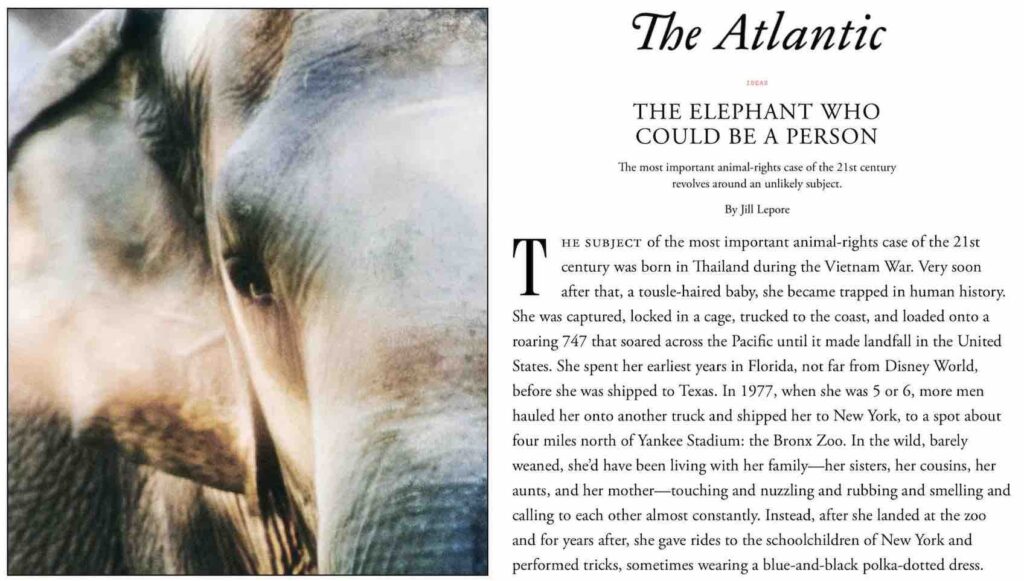
The Atlantic called the Nonhuman Rights Project’s Case on behalf of Happy the “most important animal rights case of the 21st century.”
In 2018, the NnRP filed a petition for a common law writ of habeas corpus in New York Supreme Court demanding recognition of Happy’s legal personhood and her fundamental right to bodily liberty. Happy is first elephant in the world to have a habeas corpus hearing to determine the lawfulness of her imprisonment.
As litigation has proceeded in recent years, public support for Happy’s freedom has grown. In 2019, two elected officials made public statements encouraging the WCS to free Happy. Corey Johnson, the Speaker of the New York City Council at the time, wrote, “Happy and all elephants need more space and resources than the zoo can provide, plain and simple. I urge the Bronx Zoo, which first planned to close the elephant exhibit back in 2006, to finally transfer Happy to one of two recommended sanctuaries so that she can enjoy the company of other elephants and the benefits afforded to a facility specifically designed to meet her needs.” In a tweet, U.S. Representative Alexandria Ocasio-Cortez, who has voiced her opposition to solitary confinement for prison inmates, said that “The team and I are looking into what we can do” to free Happy.
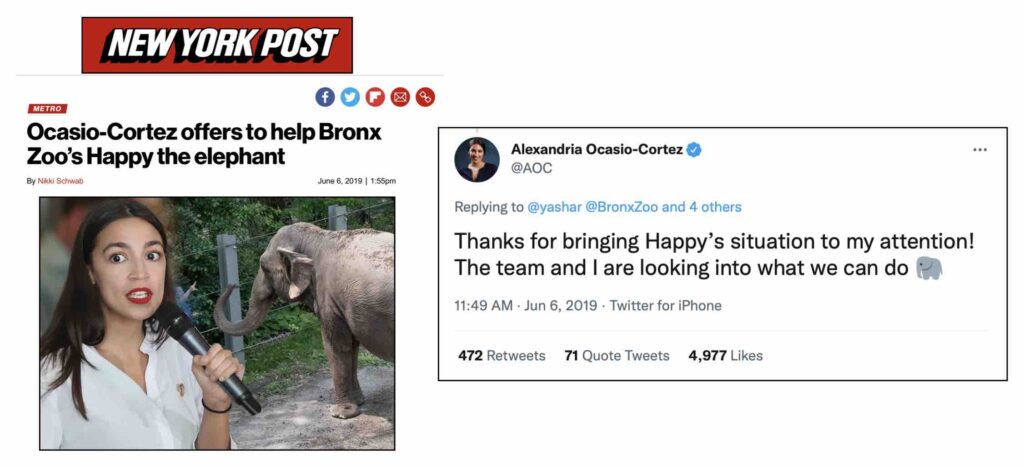
Alexandria Ocasio-Cortez, a U.S. Congress Member who represents the Bronx, offers her support to the Nonhuman Rights Project in its efforts to liberate Happy, an Asian elephant, from the Bronx Zoo
In 2021, the animal advocacy group In Defense of Animals ranked the Bronx Zoo the fifth worst zoo in the United States for elephants. “There are no good zoos for elephants. All zoos restrain these giant, complex animals through a lack of space and freedom of choice that all far-roaming animals require for their mental and physical health. Even zoos deemed to be the very best are failing elephants’ bodies, minds, and spirits.”
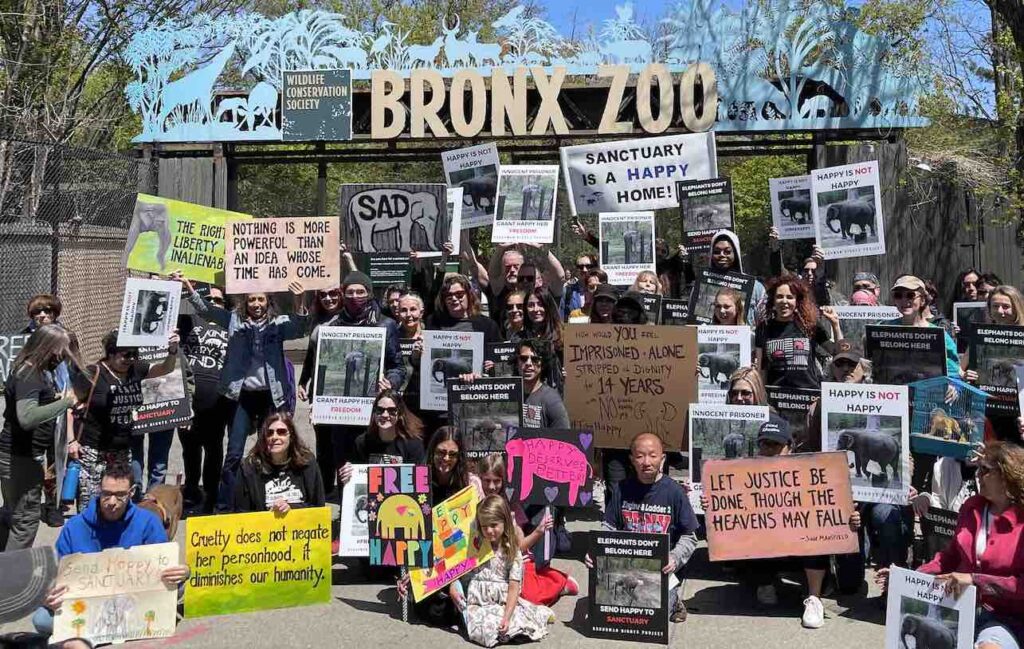
Dozens of animal rights activists participated in a rally organized by the Nonhuman Rights Project (NhRP) calling on the Wildlife Conservation Society (WCS) to release Happy, an Asian elephant, to a sanctuary.
Before NhRP’s rally, the Bronx Zoo shut down the entrance where the activists convened. The closure appeared to be an effort to reduce the number of zoo visitors who would learn about Happy’s plight. The zoo also sent an employee to document the protest. As lawyers with NhRP delivered remarks to rally participants, this employee approached the group’s unattended bags. TheirTurn caught her in the act and confronted her on camera. NhRP staff members at the rally knew that she was employed by the zoo because they have seen her at court hearings.
A Change.org petition demanding an end to Happy’s solitary confinement has garnered over 1.4 million signatures. The petition targets to James Breheny, the Director of the Bronx Zoo.
Filed under: Entertainment
Tagged with: elephants, Nonhuman Rights Project




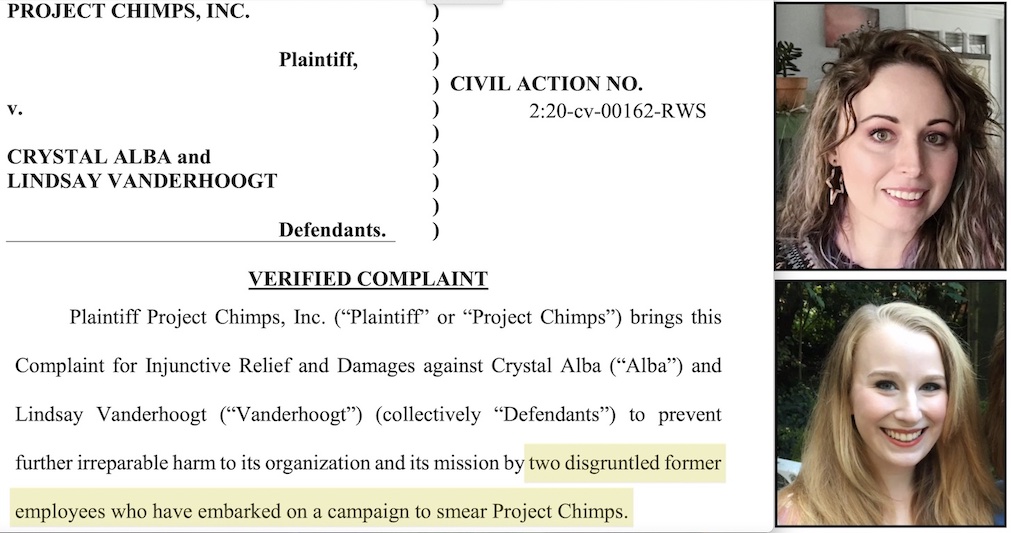
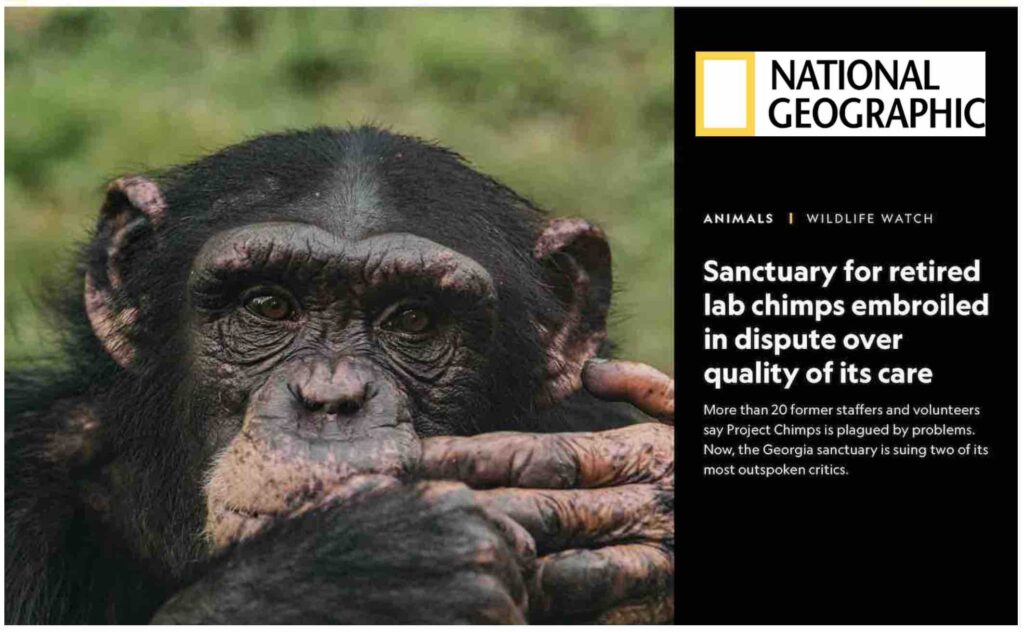
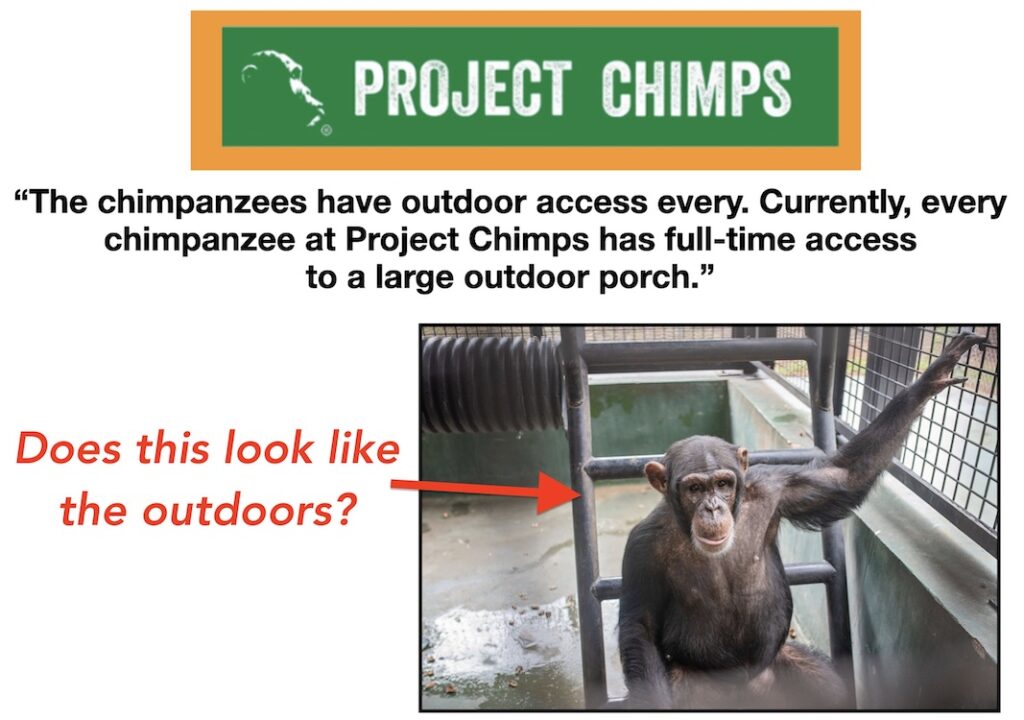
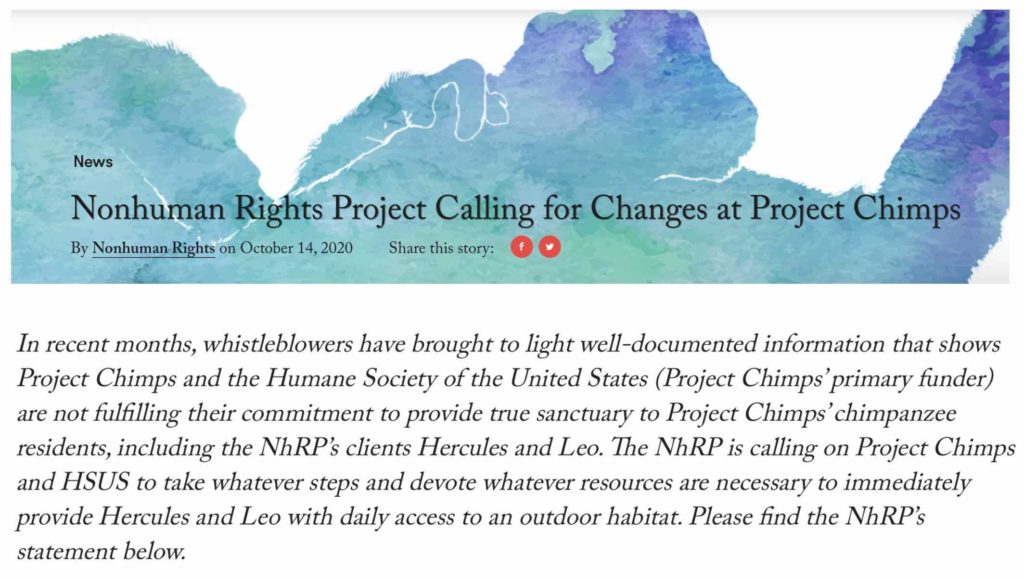

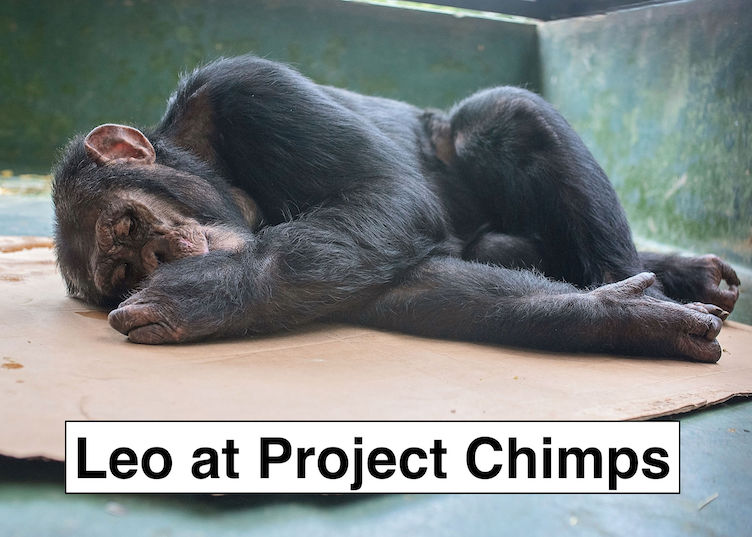
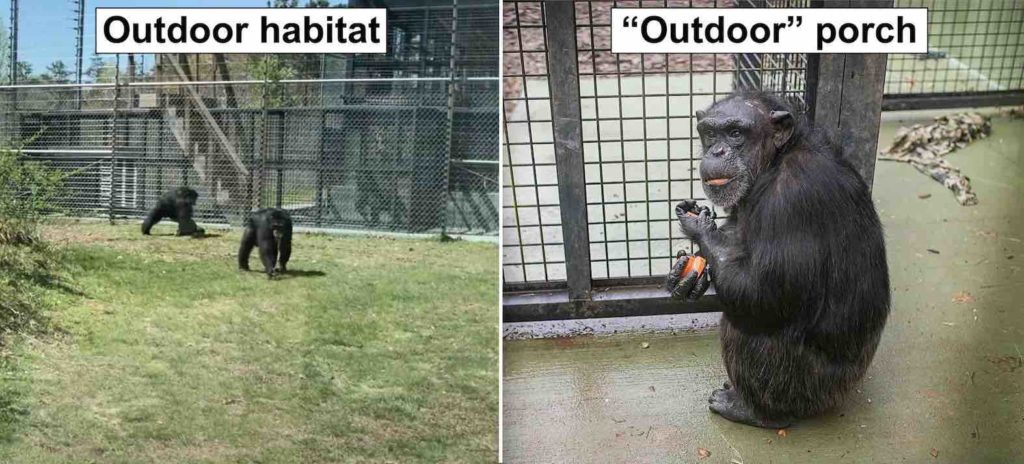
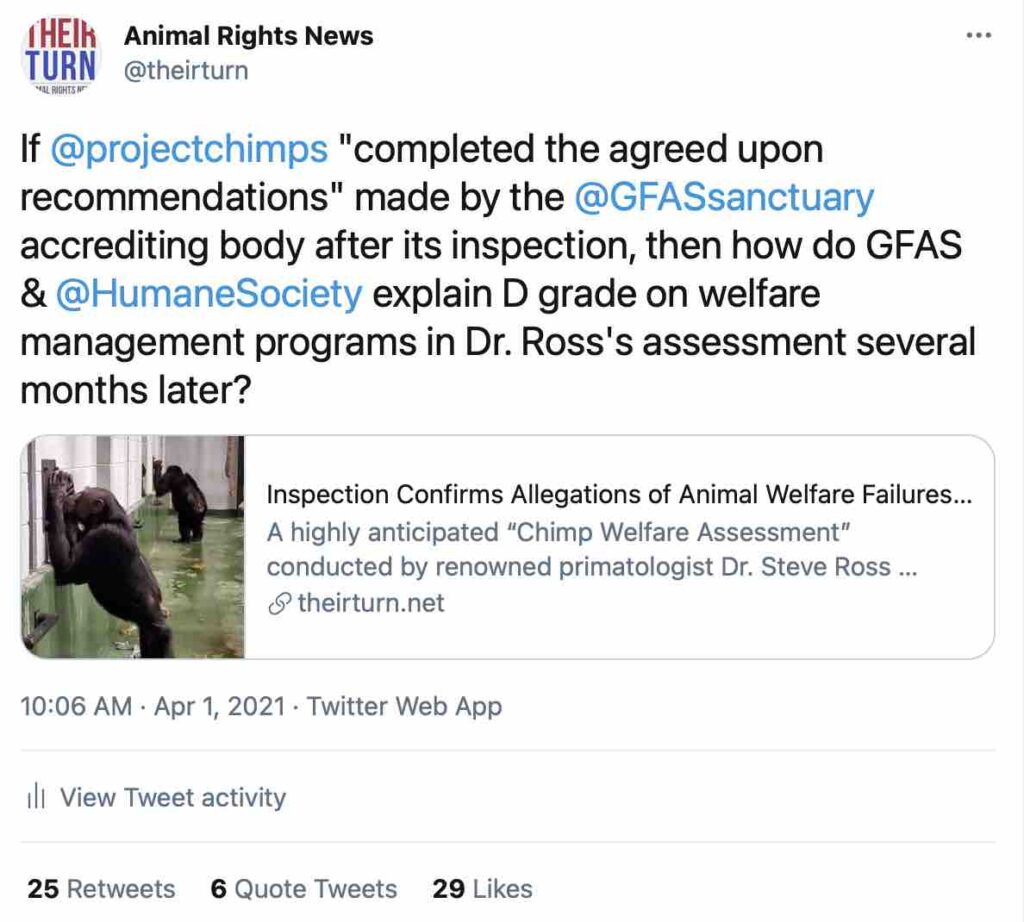
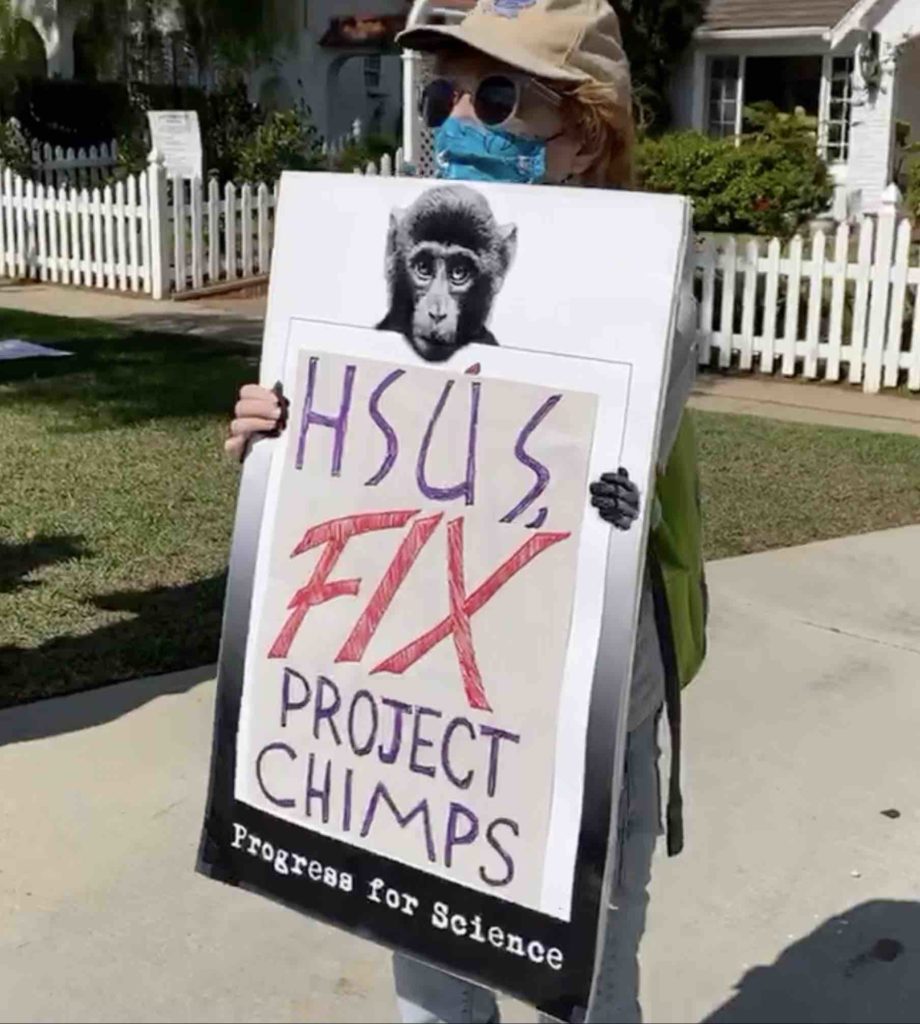
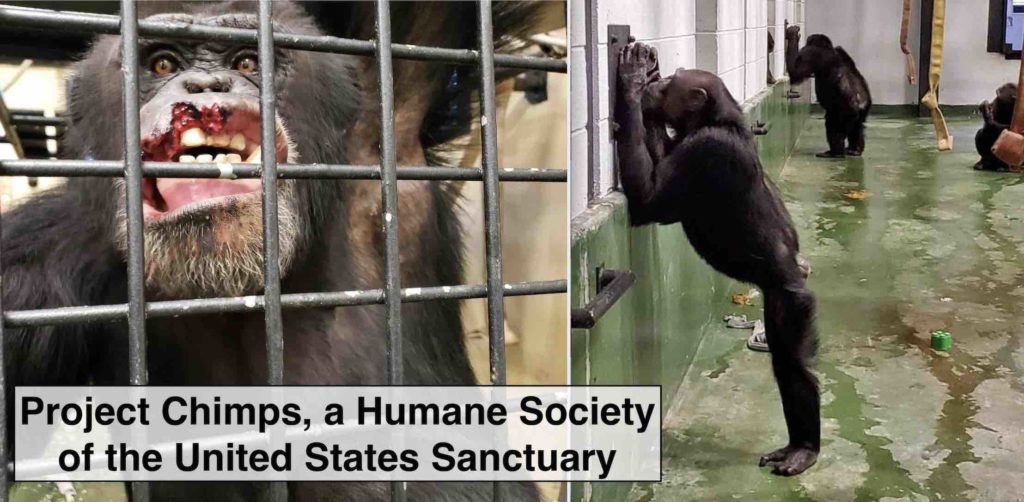
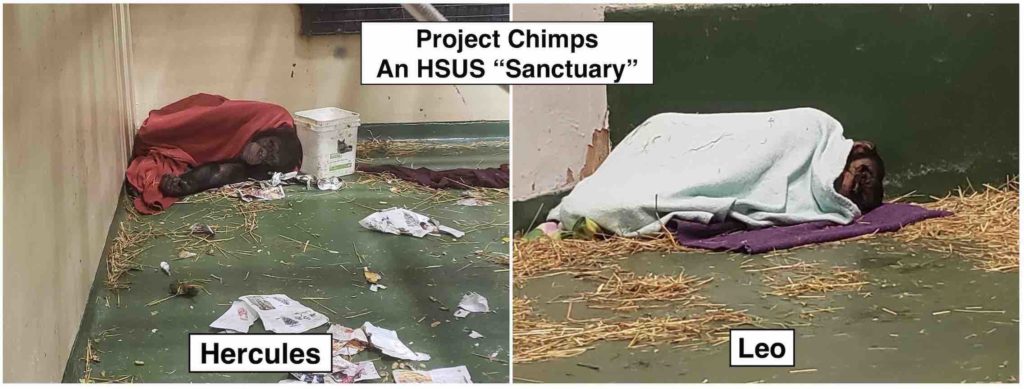
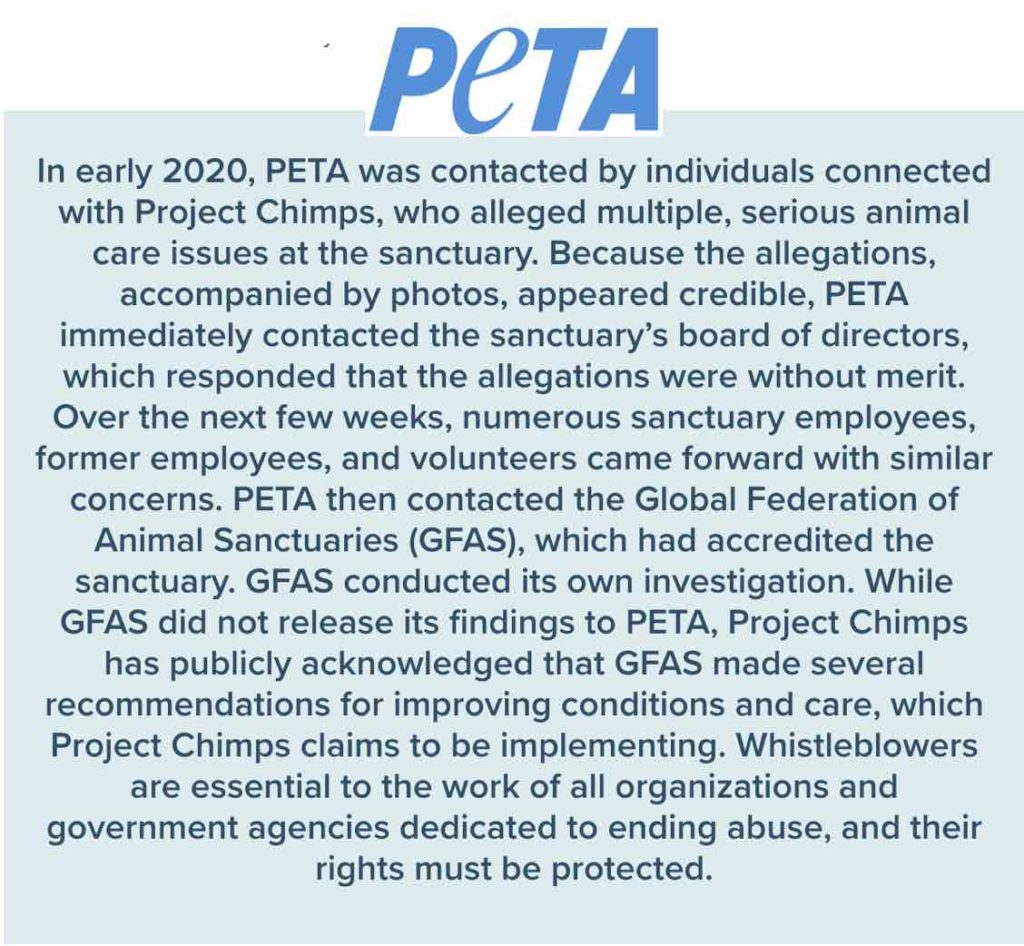

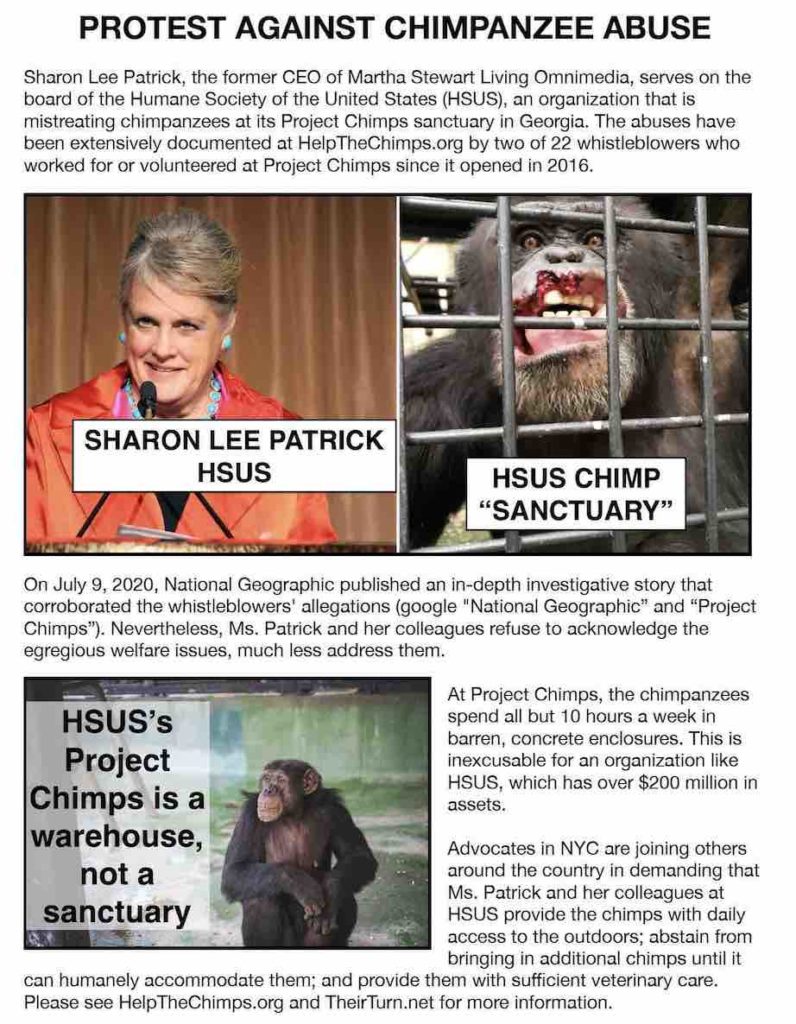
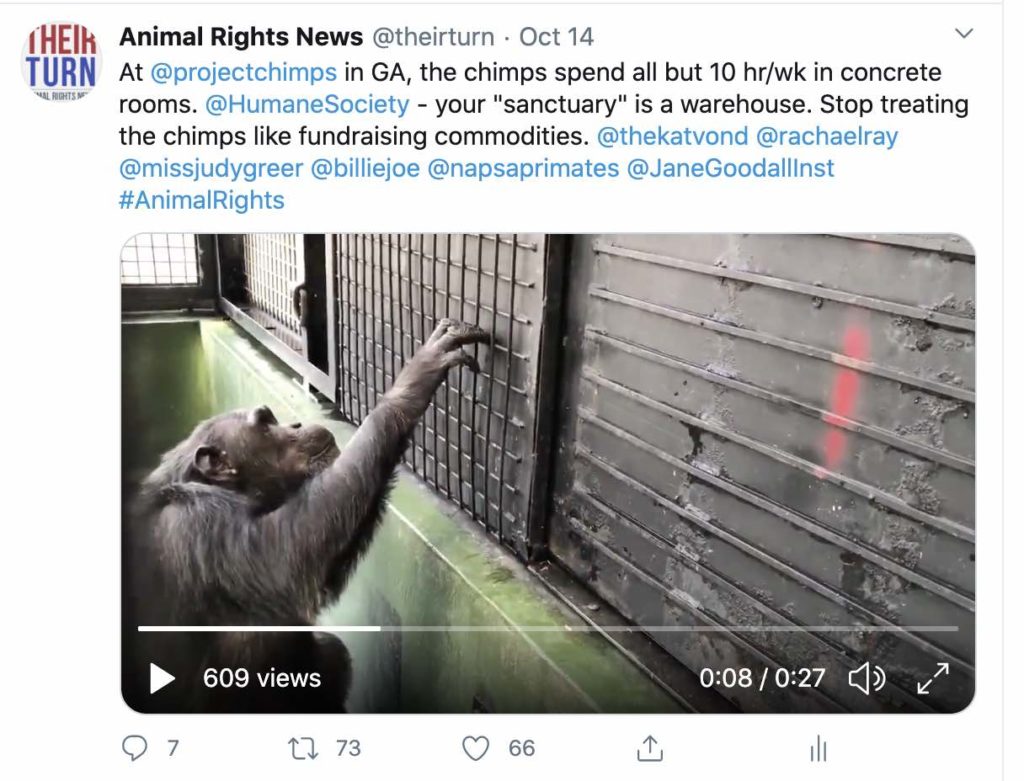
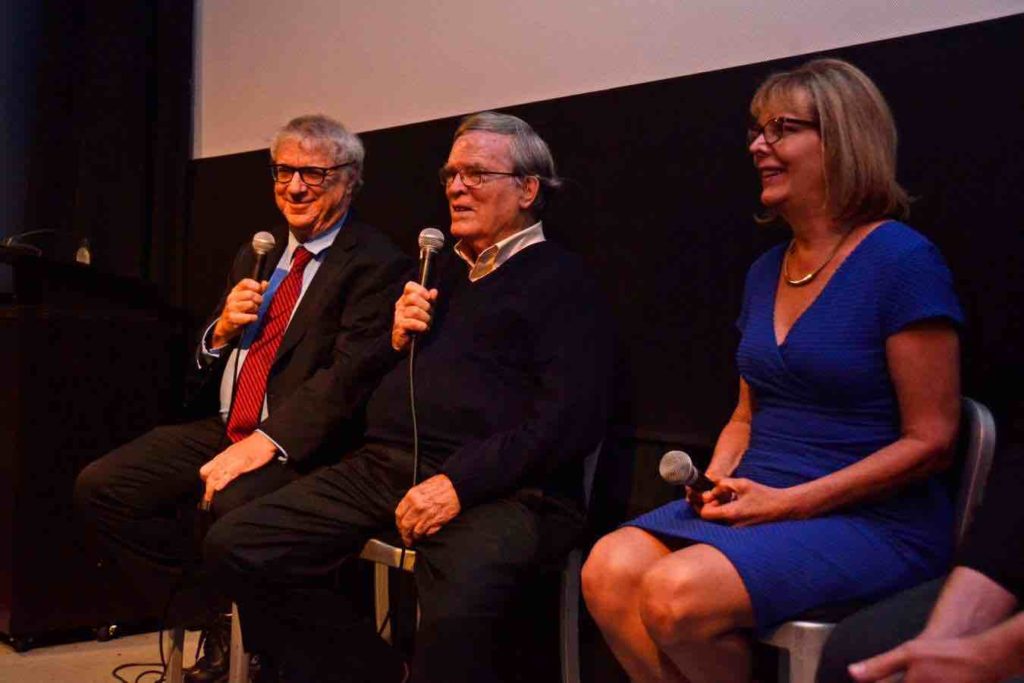
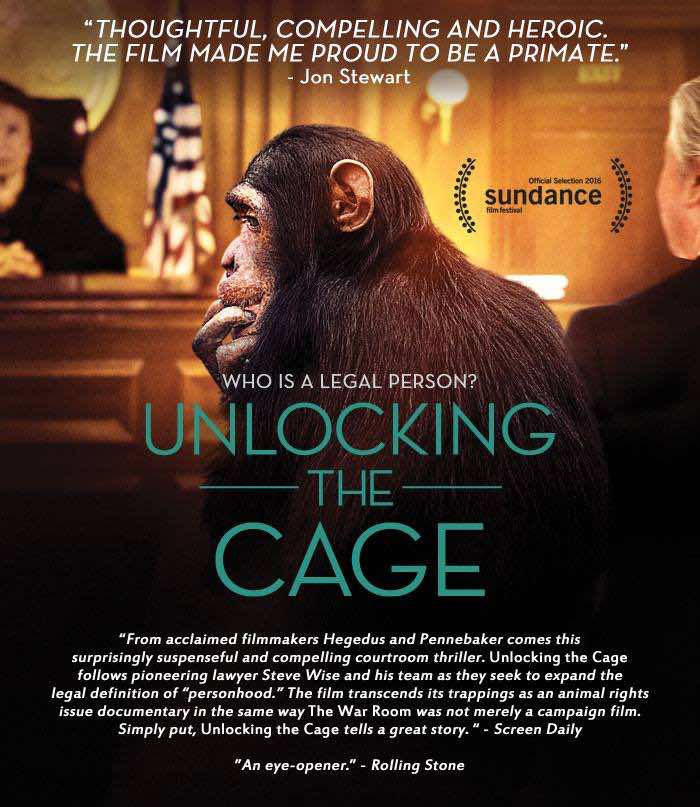
Follow Their Turn